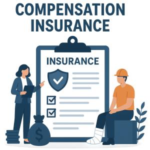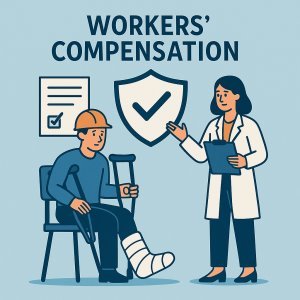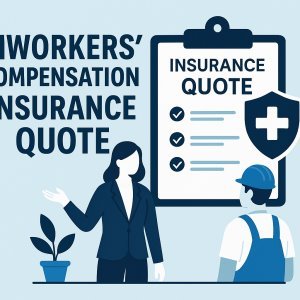
Vehicle Patrol Security Guards: Managing Auto-Related Workers’ Comp Exposures
July 23, 2025
In-Home Care Service Workers’ Comp Return-to-Work Programs That Save Money
July 23, 2025In the evolving landscape of workplace safety, the security guard industry in Georgia stands at a crossroads. With the physical demands and unpredictable nature of their duties,security personnel frequently enough face risks that lead to workers’ compensation claims. Though, the advent of artificial intelligence is opening new avenues to mitigate thes risks proactively. By harnessing complex AI technologies, businesses can enhance monitoring, improve incident prediction, and streamline response strategies-transforming how safety is managed on the ground. This article explores how AI-driven solutions are reshaping risk prevention for Georgia’s security guard workforce, paving the way toward a safer, more efficient future.
Table of Contents
- Harnessing AI to Identify Risk factors in Security Guard Workplaces
- Enhancing Incident Reporting and Response through Intelligent Systems
- AI-Driven Training Programs Tailored for Georgia Security Guards
- Best Practices for Integrating AI into Workers Compensation Management
- Q&A
- Closing Remarks
harnessing AI to Identify Risk Factors in Security Guard Workplaces
- Early detection of hazard trends through continuous data monitoring
- Customized training programs addressing high-risk scenarios
- Optimization of patrol routes minimizing exposure to danger
- Improved reporting accuracy with automated incident classification
| Risk Factor | Frequency | AI Suggested Action |
|---|---|---|
| poor Lighting | High | install additional fixtures |
| Fatigue-Related Errors | Medium | Revise shift schedules |
| Unauthorized access Attempts | Moderate | Enhance perimeter monitoring |
Enhancing Incident Reporting and Response through Intelligent Systems
AI-powered intelligent systems have revolutionized how security companies manage incident reporting and response, leading to a noticeable decline in workers’ compensation claims among Georgia security guards.By leveraging real-time data analytics and automated alert mechanisms, these systems ensure that every incident is documented with precision and speed, minimizing human error and delay. Security personnel can now report incidents from mobile devices, instantly triggering a coordinated response that addresses potentially hazardous situations before they escalate. This proactive approach not only safeguards employees but also fosters a safer work habitat, directly impacting claim reduction.
Key benefits of intelligent incident reporting systems include:
- Automated incident categorization and severity assessment
- Instant notifications to supervisors and emergency responders
- Comprehensive digital logs for accurate claim evaluation
- Data-driven insights to prevent future incidents
| Feature | Impact on Workers’ Comp Claims |
|---|---|
| real-time Reporting | Faster response minimizes injury severity |
| Predictive Analytics | Identifies high-risk scenarios preemptively |
| Automated Documentation | Reduces disputes and paperwork errors |
| Mobile Accessibility | Ensures timely reporting from any location |
AI-Driven Training Programs Tailored for Georgia Security guards
| Training Aspect | Traditional Approach | AI-Driven Programs |
|---|---|---|
| Customization Level | One-size-fits-all curriculum | Tailored to individual risk profiles |
| Engagement Style | Lecture and booklet-based | Interactive simulations and real-time feedback |
| Adaptability | Static updates, usually annual | continuous updates based on new data |
| Outcome Focus | Knowledge retention only | Behavior modification and injury prevention |
- Reduced workplace injuries through targeted hazard recognition
- Enhanced situational awareness via customized scenario drills
- Improved compliance with Georgia’s security standards and regulations
- Lower workers’ compensation claims by minimizing accidents and mishaps
Best Practices for Integrating AI into Workers Compensation Management
Seamlessly incorporating AI into workers compensation management requires a strategic approach that prioritizes accurate data analysis and proactive risk mitigation. Start by leveraging AI-powered predictive analytics to identify potential high-risk scenarios specific to Georgia security guards, such as shift timings linked to increased injury rates or particular environments prone to accidents. Implementing AI-driven monitoring systems can also enhance real-time detection of unsafe practices, ensuring that preventative measures are activated before incidents occur. calm, continuous refinement of algorithms based on localized data patterns maintains AI relevance and boosts claim reduction effectiveness.
Equally critically important is fostering collaboration between AI technologies and human expertise. Train management teams to interpret AI insights properly and empower safety officers with AI tools designed for rapid incident reporting and claim documentation. Prioritize openness with your security guards by explaining how AI aids in reducing workplace risks while protecting their rights. Consider the following checklist for smoother AI integration:
- Data Integrity: Ensure clean, unbiased data feeds from various sources are maintained.
- Training Programs: Equip staff with AI literacy to leverage tech optimally.
- Regular Audits: Conduct AI performance reviews to identify gaps and enhance models.
- Privacy Compliance: Safeguard employee information following Georgia state laws.
Q&A
Q&A: Using AI to Reduce Georgia Security Guard Workers’ Comp Claims
Q1: What is the main challenge Georgia security guard companies face regarding workers’ compensation claims?
A1: The primary challenge is managing frequent and costly workers’ compensation claims resulting from on-the-job injuries. Security guards often work in dynamic and potentially hazardous environments, increasing their risk of accidents and subsequent claims.
Q2: How can Artificial Intelligence (AI) help reduce workers’ comp claims for security guards in Georgia?
A2: AI can analyze vast amounts of data to identify patterns and risk factors contributing to injuries. By proactively predicting high-risk scenarios and recommending preventive measures, AI helps companies minimize accidents before they happen.
Q3: Can you give an example of AI in action within this context?
A3: Sure! AI-powered wearable devices can monitor guards’ fatigue levels, posture, and environmental hazards in real-time. As an example, if a guard shows signs of fatigue or hazardous slip conditions are detected, the system can alert supervisors to intervene immediately, reducing injury risks.
Q4: Are there specific AI tools tailored for the security industry?
A4: yes, there are AI platforms designed for workplace safety that integrate with security operations.These tools combine incident reporting, surveillance analytics, and predictive modeling to provide comprehensive risk management tailored to security guards’ unique work environments.Q5: How do Georgia regulations influence the adoption of AI in workers’ comp management?
A5: Georgia’s regulatory framework encourages workplace safety but requires that any AI-driven interventions comply with privacy laws and employment standards.Companies must balance innovative safety measures with adherence to state guidelines to ensure ethical and legal use of AI.
Q6: What benefits can security guard companies expect from implementing AI solutions?
A6: Reduced injury rates leading to fewer and less severe workers’ comp claims, lower insurance premiums, enhanced guard wellbeing, and improved operational efficiency through data-driven decision-making.
Q7: Are there challenges in integrating AI into existing safety protocols?
A7: Integration challenges include initial costs, training staff to effectively use AI tools, and ensuring data security. Additionally,skepticism around AI’s reliability or fears about surveillance may require clear communication to build trust among employees.
Q8: What does the future look like for AI and workers’ comp in the security sector?
A8: AI will become increasingly sophisticated, with predictive analytics and smart automation enabling more personalized and adaptive safety strategies. This evolution promises a safer working environment for security guards and more cost-effective claims management for companies in Georgia and beyond.
This Q&A highlights how AI is transforming workers’ compensation management for Georgia’s security guards, blending technology with safety to create smarter, healthier workplaces.
Closing Remarks
As the landscape of workplace safety continues to evolve, integrating AI into the realm of Georgia security guard operations offers a promising path toward minimizing workers’ compensation claims.By leveraging intelligent technologies to anticipate risks,streamline reporting,and enhance training,organizations can create safer environments not only for their guards but also for the communities they protect. While challenges remain,the thoughtful application of AI stands as a beacon of innovation-transforming reactive approaches into proactive strategies that safeguard both people and bottom lines. In embracing this technological frontier, Georgia’s security industry takes a decisive step toward a safer, smarter future.
“This content was generated with the assistance of artificial intelligence. While we strive for accuracy, AI-generated content may not always reflect the most current information or professional advice. Users are encouraged to independently verify critical information and, where appropriate, consult with qualified professionals, lawyers, state statutes and regulations & NCCI rules & manuals before making decisions based on this content.”








